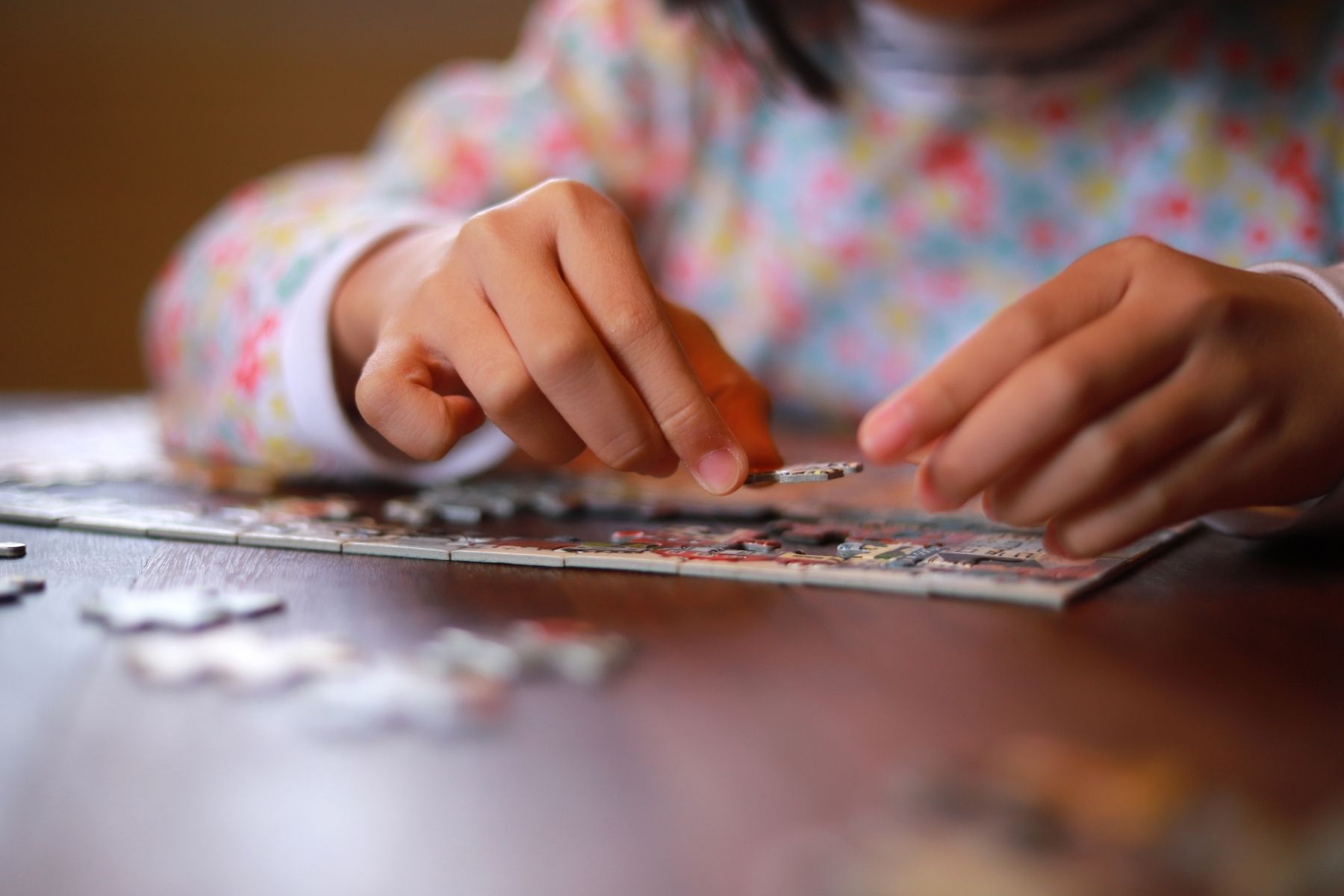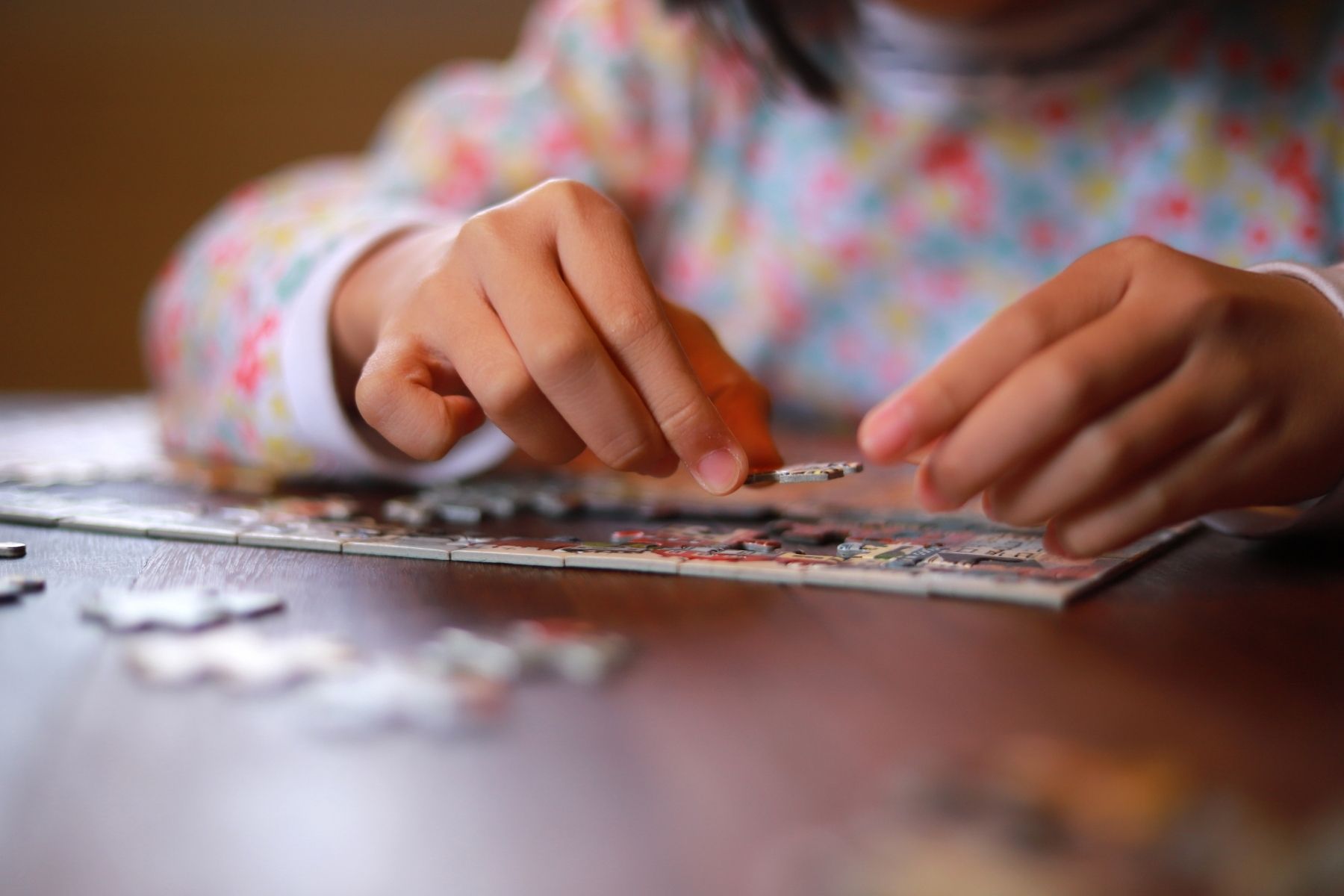
Five reasons why puzzles are the perfect multi-purpose pastime for kids
Posted by: Katie King
Tue 5th July 2022
Anthony Trowsdale is a puzzle expert and third generation owner of Just Jigsaws – an Alfreton family business running for more than 50 years. He shares with us the top five developmental benefits of puzzle playtime for kids.
HAND-EYE COORDINATION
Puzzles encourage kids to develop their hand-eye coordination. The ability to coordinate what the eyes see, the mind wants to do and what the hands can achieve requires a lot of practice. Children learn to develop a relationship between their eyes, hands, and brains. Children also visualise how the puzzle should look when it is complete, and their hands and eyes work together to achieve the final goal.
MEMORY AND COGNITIVE SKILLS
Puzzles give kids the chance to use adaptable thinking, deduction and reasoning skills as they figure out how to put the puzzle together. The fact that they need to remember shapes and patterns, helps to develop their memory retention. Truth be told I think I should start doing puzzles again!
Puzzles help develop and improve cognitive skills and gain the ability to think abstractly. When children see an empty space where a puzzle piece may fit, they need to figure out what type of shape is needed to fill that space.
PROBLEM SOLVING AND SELF CORRECTING
Solving problems requires creativity and patience. Puzzles are mostly about finding different ways to solve problems. They force a child to think very carefully to find the right pieces, there are no shortcuts thankfully. If a piece does not fit, there is nothing they can do. They become aware of how to self-correct – if the piece doesn’t fit into a certain space they need stop and figure out where that particular piece should fit. The act of manipulating each piece, turning it, and testing the fit is a great exercise in problem solving.
IMPROVED CONCENTRATION & PATIENCE
Completing a puzzle requires kids to focus for long periods of time. They need to take their time to see how different pieces will fit and this develops concentration skills and patience skills both of which are extremely useful later in life. Remind them that completing a puzzle from the start to finish is not always an easy task on the first attempt, but they may need to repeat this a few times before they find the correct fit for all the pieces.
SELF-ESTEEM
Completing a puzzle helps to build the self-confidence as well all know there’s no better feeling than finish a task. It may encourage them to pursue other challenges as well. The sense of pride and achievement once the puzzle is solved makes kids feel a sense of accomplishment which boosts independence. Puzzles are a good lesson to kids that putting in effort helps to achieve goals. I still remember the great feeling of finally finishing a 48-piece puzzle on a rainy day and being ready to take on a bigger challenge.
Just Jigsaws is a small family manufacturing business, established in 1973 after founder John Trowsdale broke a world record for hand crafting then the world’s largest Jigsaw puzzle. The puzzle was built up of 32,000 pieces – most of which were cut by himself.
Today Just Jigsaws continues to create high quality and interactive puzzles from their factory in Alfreton.
Find out more here.
Image Gallery
Cost of Living
Lots on offer at community pantry
Crime & Policing
Police raise awareness of alert system to shoppers
Education & Skills
Council offers courses for volunteers
Health & Wellbeing
Getting creative for community plant sale
History & Heritage
Civic visit at Derbyshire heritage site
Youth Zone
Getting creative with film-making

